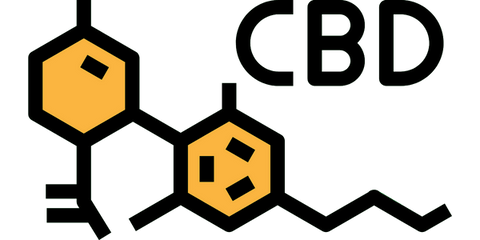During the last decade, we’ve seen an explosion of research into the medicinal and therapeutic potential of the non-intoxicating cannabinoid CBD. Despite this myriad of recent studies, the Food and Drug Administration has remained hesitant to approve any CBD products. Only the product Epidiolo has been approved for medical use, citing a dearth of clinical studies using human models.
However, the studies that have already been published are extremely promising. These point to CBD as having tons of medicinal applications, including anxiety reduction, pain relief, and seizure prevention.
Surprisingly, CBD may also be part of an effective treatment plan for a traumatic brain injury. Here’s what the science says:
How Does CBD Affect The Brain?

Around 30 years ago, while researching the effects of THC, scientists uncovered a complicated cell-signaling system present in human bodies called the endocannabinoid system (ECS). The endocannabinoid system is made up of endocannabinoids, which are compounds similar to the cannabinoids found in the cannabis plant. These compounds are naturally produced by the human body, as well as endocannabinoid receptors which are located throughout the brain and nervous system.
Research into the ECS is still relatively new compared to other bodily systems. We still have a lot to learn about its role. However, we have identified several functions including: memory retention, appetite, mood, motor control, pain perception, and sleep patterns.
These are functions that are directly linked to the ECS. Here’s how it works:
Endocannabinoids function like chemical messengers by binding to the endocannabinoid receptors, which initiates neural activity and helps to maintain homeostasis. When we consume cannabis, either by taking a dropper of CBD oil or taking a rip from a bong, the cannabinoids from the cannabis interact with our endocannabinoid receptors.
THC mimics endocannabinoids and binds directly to the receptors. On the other hand, CBD doesn’t make a connection and instead influences the way the receptors respond to other chemical signals. Some experts speculate that this crucial difference may account for CBD’s non-intoxicating nature.
What Are Traumatic Brain Injuries?

So now that we know how CBD interacts with a normal brain, let’s find out how it can affect one damaged from a traumatic injury.
TBIs (traumatic brain injuries) are one of the leading causes of death across the globe for people under the age of 45. Even when a TBI isn’t fatal, the long-term consequences can dramatically impact memory, personality, and life expectancy. In recent years, high-profile murder trials featuring celebrity athletes have brought attention to these issues. Cases like Daniel Hernandez and Chris Jericho have shed light on some of the more disastrous consequences of traumatic brain injuries.
CBD and Traumatic Brain Injuries

Currently, treatment options for traumatic brain injuries are incredibly limited. Live-saving surgical intervention is available for patients with severe or potentially fatal injuries. However, long-term treatment usually consists of symptom management and rehabilitation.
However, according to some experts from the UCLA Medical Center, having cannabinoids in your system may reduce the severity of a traumatic brain injury. This may point toward the neuroprotective quality of cannabinoids like THC and CBD.
Animal studies using rodent models seem to back this up. Multiple trials using mice indicate that cannabinoids can limit nerve damage. Cannabinoids can also assist in healing damaged nerve cells by activating the CB1 cannabinoid receptors.
These receptors enhance blood flow to the brain and deliver oxygen and nutrients straight to the brain. Preclinical research also suggests that activating the CB2 cannabinoid receptors can inhibit the neural processes that cause cell death and neuron deterioration.
While we still need more clinical research with actual human subjects, these preliminary findings are incredibly promising. It turns out cannabinoids may be the key to treating traumatic brain injuries. If you or a loved one is suffering from a TBI or chronic traumatic encephalopathy, make sure to check with your physician before beginning a CBD regimen.


